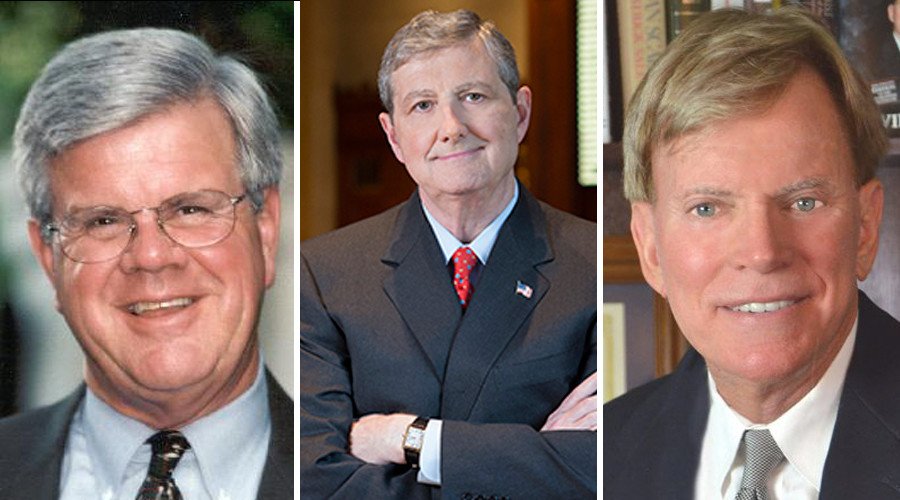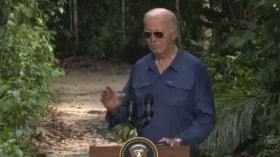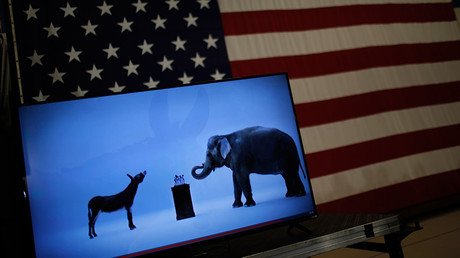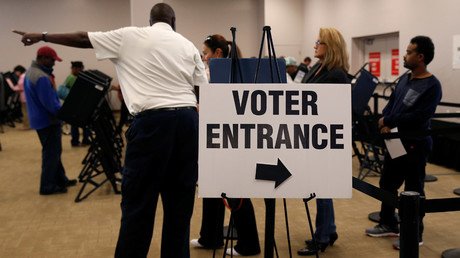As hot as presidential race: Who gets control of the Senate?
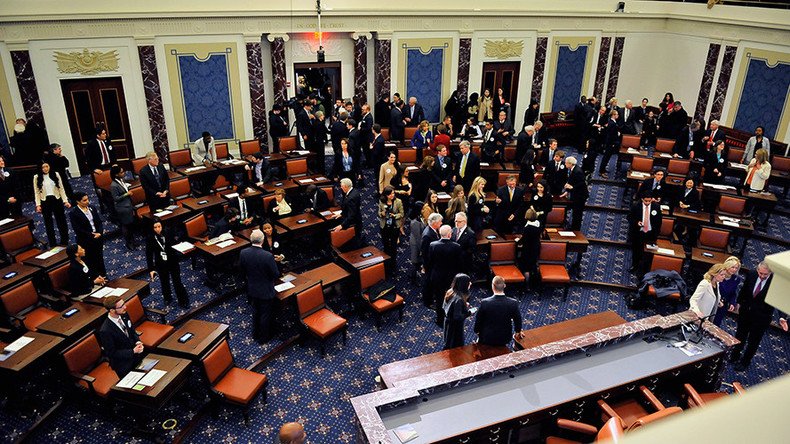
This November, Democrats have their first chance to take back the Senate since becoming the minority party in the 2010 midterms. However, Republicans stand strong as well. Whoever gets control of the Senate will have a long-lasting effect on US politics.
FOLLOW RT'S ELECTION LIVE UPDATES
If Democrat Hillary Clinton wins, she’ll hope that her party took back the upper chamber. If Republican Donald Trump wins, it likely won’t matter because of his antagonistic relationship with lawmakers from both parties.
In the Senate, two lawmakers from each state serve six-year terms, and only one-third of seats are voted on during any one election cycle.This year, seven Democratic and 22 Republican senators are running for reelection, while another three Democrats and two Republicans are retiring and leaving their seats up for grabs. Only 12 of the races are considered competitive, and the Democrats need win just five of them to take control of the Senate. Democrats have a 60.5 percent chance of taking back control of the Senate, according to statistical blog FiveThirtyEight.
US Chamber of Commerce raises money for #GOP Senate candidates amid #Trump concerns https://t.co/fcjprxwvKKpic.twitter.com/VpbtJ5QE2J
— RT America (@RT_America) May 31, 2016
Predicting Senate races isn’t easy, as public polls conducted from outside a state don’t necessarily reflect the internal polling done by campaigns. This year, however, the public polls and internal assessments by both parties largely match each other, Politico reported. Of the 12 competitive races, six are considered toss-ups, with polls showing that the candidates are within 4 percentage points of each other.
Arizona
After facing a tough primary battle, Republican Senator John McCain looked vulnerable to a challenge from Democratic Representative Ann Kirkpatrick. She is unlikely to unseat the Republican stalwart, however. McCain was his party’s presidential candidate in 2008 and has served five terms in the Senate. He has a 94.8 percent chance of remaining there for his sixth, according to FiveThirtyEight. Kirkpatrick, who is finishing up her second term the House, unsuccessfully sought to tie McCain to Trump, especially after the GOP presidential nominee tepidly endorsed the Arizona senator. However, the two men have argued publicly about policies, and Trump once called McCain a “loser” for being a prisoner of war during the Vietnam War. McCain said he and his wife would not vote for his party’s nominee after audio came to light of Trump making lewd remarks about groping women in 2005.
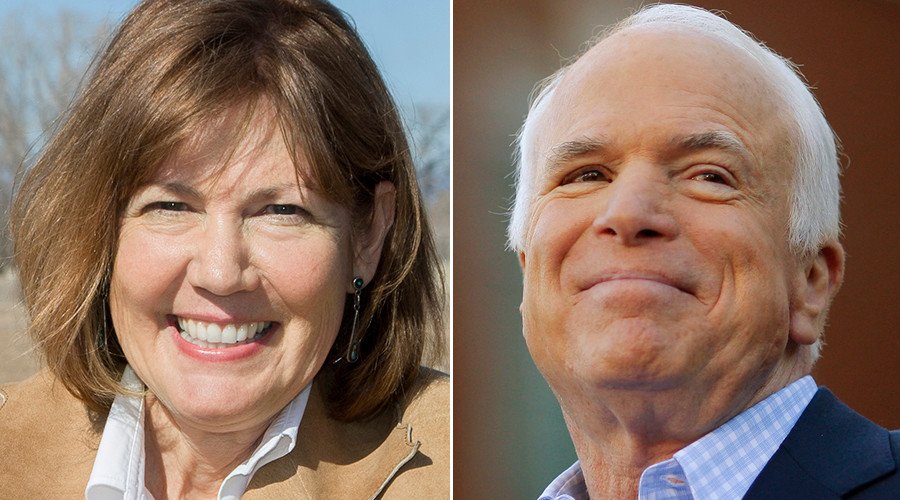
Colorado
Two-term incumbent Michael Bennet is facing a challenge from Republican Darryl Glenn, but it is one he is likely to win handily: He has a 95.8 percent chance of winning, according to FiveThirtyEight. Glenn is a retired lieutenant colonel in the US Air Force, has served on the Colorado Springs City Council and as an El Paso County commissioner, and is backed by the Tea Party movement.
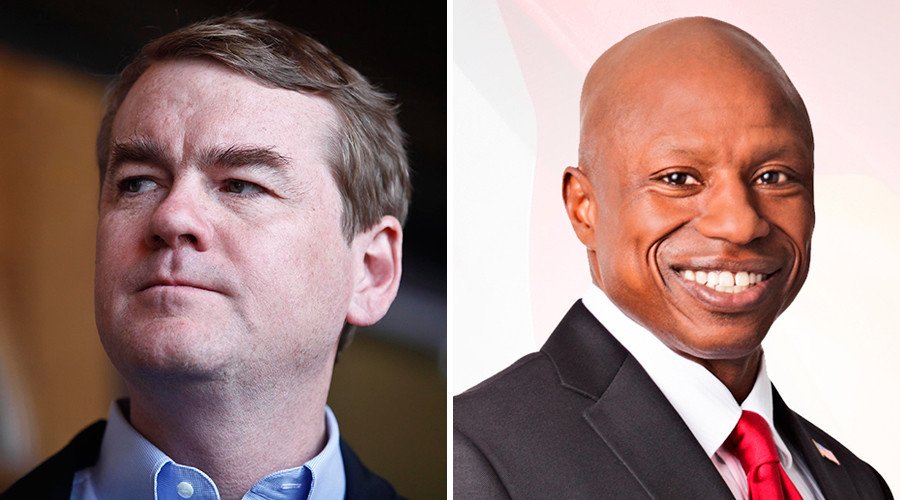
Florida
In what was supposed to be an open seat, Republican Sen. Marco Rubio decided to run for reelection after he lost his home state in the GOP presidential primary and dropped out of the race in March. He faces two-term Democratic Rep. Patrick Murphy. Rubio has an 82.5 percent chance to serve a second term in the Senate, according to FiveThirtyEight.
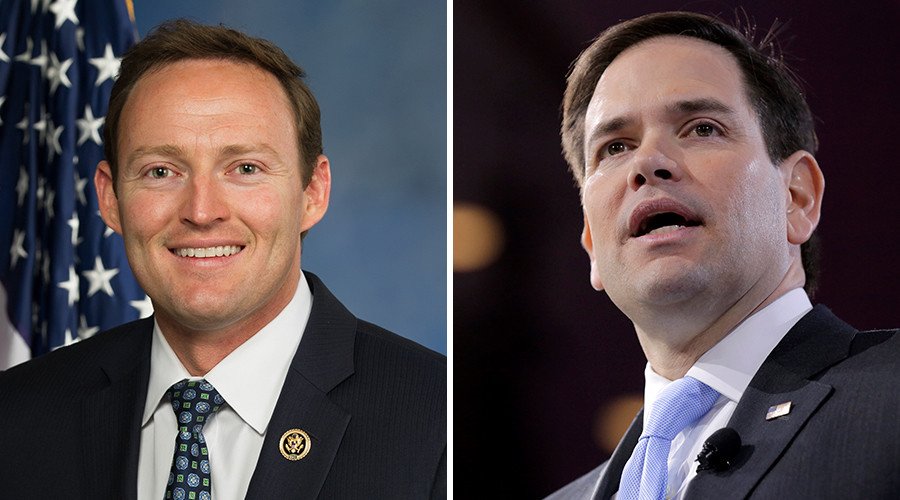
Illinois
#Clinton defends #TammyDuckworth after Mark Kirk's debate attacking her family's military service https://t.co/2pNyW9VRCKpic.twitter.com/tuyHzveqmf
— RT America (@RT_America) October 28, 2016
This race is unusual because both candidates use a wheelchair. Democratic Rep. Tammy Duckworth lost her legs serving in the Iraq War, while Republican Sen. Mark Kirk suffered a stroke in 2012. Kirk has looked vulnerable since at least 2014, when rumors abounded that First Lady Michelle Obama had her eye on the seat once held by her husband. Illinois is a blue state, and Kirk has run to the center and away from Trump. He was one of the few GOP senators willing to meet with President Barack Obama’s Supreme Court nominee, Merrick Garland. Obama has endorsed Duckworth, a former assistant secretary of the Veterans Affairs Department, the Wall Street Journal reported. She has a 97.4 percent chance of beating the incumbent, according to FiveThirtyEight.
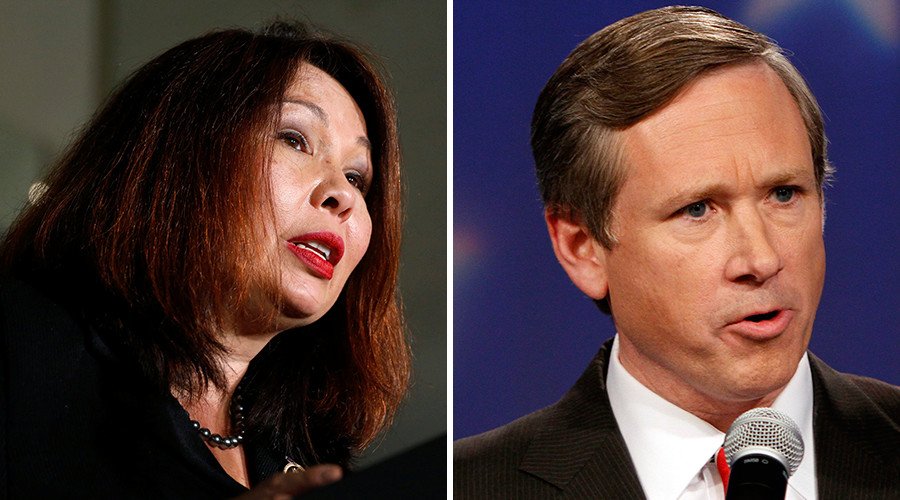
Indiana
This open seat features former Sen. Evan Bayh, a Democrat who also served as governor, seeking to re-take his old seat against Rep. Todd Young, a Republican. When Bayh launched his campaign in July ‒ at the last minute, the Washington Post reported ‒ he became the favorite to win overnight. Young went from having a 76.6 percent chance of winning in the red-leaning state on August 2 to having a 20.6 percent chance on August 3, according to FiveThirtyEight. Since then, the race has tightened, and Bayh has only a 56.9 percent chance of regaining the seat. The candidates are now tied at 45 percent of support each from likely voters, a Monmouth University poll released Monday found. Bayh has been a lobbyist since he left the Senate in 2010.
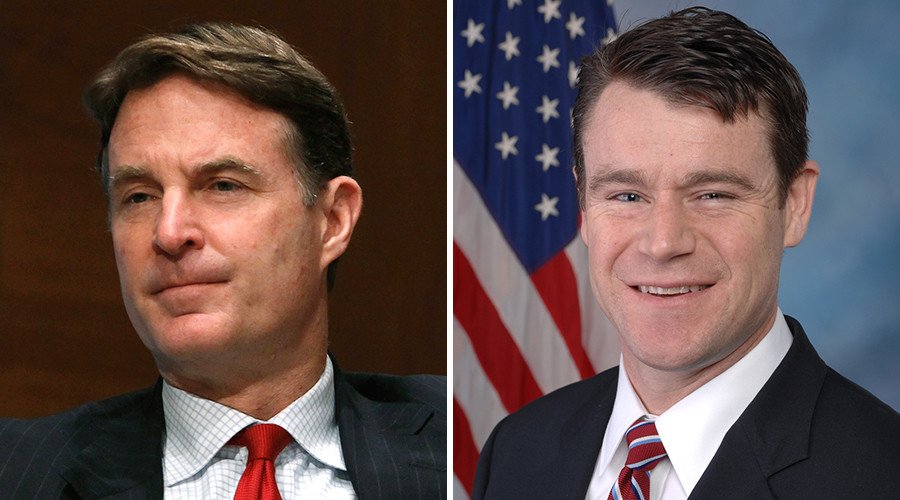
Missouri
Missouri Secretary of State Jason Kander, a Democrat, seeks to unseat Sen. Roy Blunt, a Republican. Kander has come from behind to take a slight lead over the incumbent, and has a 51.1 percent chance of winning, according to FiveThirtyEight. However, less than a week before Election Day, the two men are statistically tied ‒ with Blunt leading by 1.5 percentage points ‒ in the Real Clear Politics average of polls. The state is red when it comes to presidential politics, but its governor, Jay Nixon, and its senior senator, Claire McCaskill, are both Democrats. Blunt’s campaign started off slowly, and Kander has been a savvy candidate who is running what politicos are calling the best ad of the campaign cycle, the Washington Post reported. Kander, 35, is an Afghanistan war veteran who is running as an outsider, compared to Blunt, who served in the House of Representatives for 14 years before running for Senate, where he is a member of the GOP leadership.

Nevada
Former state Attorney General Catherine Cortez Masto was handpicked by retiring Senate Minority Leader Harry Reid as his replacement. She is facing off against Rep. Joe Heck. An interesting side note if the Republican wins: Nevada, the home of Sin City, would be represented by Heck and Heller, as the soon-to-be senior senator is Dean Heller, a fellow Republican. However, Cortez Masto has a 59.9 percent chance of retaining the seat for the Democrats, according to FiveThirtyEight, even though the two candidates are statistically tied ‒ with Heck leading by 1.4 percentage points ‒ in the Real Clear Politics average of polls with less than a week before the vote. Cortez Masto comes from a political family in Las Vegas, while Heck is a moderate finishing up his third term in the House. He is also a physician and, in 2014, was promoted to brigadier general in the US Army Reserve, where he has commanded a Medical Readiness Support Group and deployed during operations in Bosnia and Iraq.
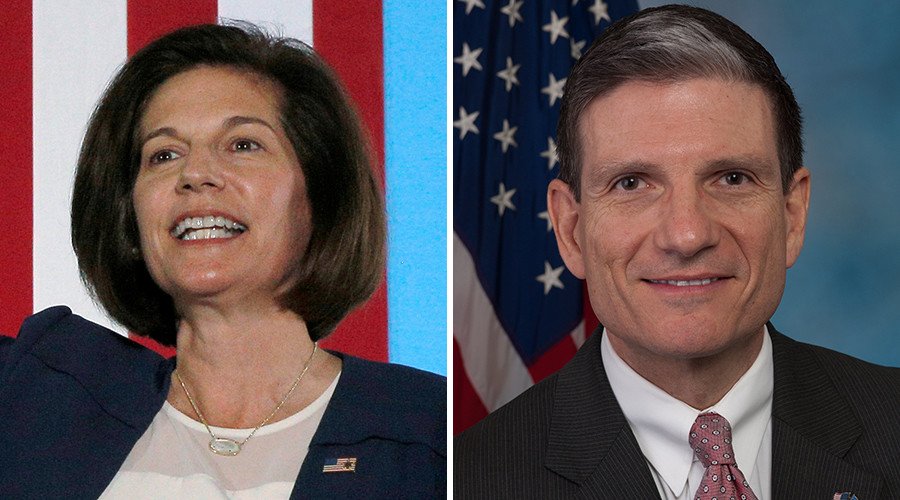
New Hampshire
Republican incumbent Kelly Ayotte is facing stiff competition from Democratic Governor Maggie Hassan, who has a 60 percent chance of flipping the seat, according to FiveThirtyEight. However, less than a week before Election Day, the two women are statistically tied ‒ with Ayotte leading by 2.5 percentage points ‒ in the Real Clear Politics average of polls. Both women are popular in the Granite State, but Ayotte has been hit hard by Democrats over her ties to and previous praise of Trump, the Wall Street Journal reported. The billionaire businessman tepidly endorsed the New Hampshire senator, who has said that she plans to write in GOP VP candidate Mike Pence.
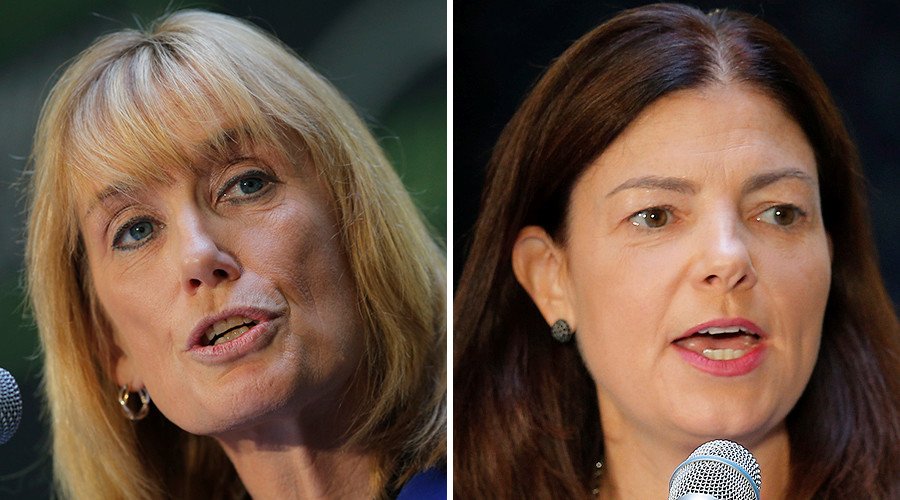
North Carolina
Former state Rep. Deborah Ross is seeking to unseat Sen. Richard Burr in a race that wasn’t supposed to be competitive. Burr was reelected in 2010 with 55 percent of the vote, but is on the defensive thanks to Republican politics in the Tar Heel State ‒ specifically HB 2, the so-called “bathroom bill” ‒ and Burr’s ties to Trump in a presidential swing state that is too close to call. The incumbent is also one of three senators, including McCain and Ted Cruz of Texas, who have said that they will not allow Hillary Clinton to fill the current Supreme Court vacancy if she is elected on Tuesday. Ross has problems of her own, with Republicans claiming that the former head of the state’s American Civil Liberties Union (ACLU) is too liberal for the southern state, the Wall Street Journal reported. On top of that, a top Democratic donor was caught on video making insulting remarks about black voters who support Trump while fundraising for Ross. Burr has a 66.7 percent chance of retaining his seat, according to FiveThirtyEight, while the two candidates are statistically tied ‒ with Burr leading by 1.5 percentage points ‒ in the Real Clear Politics average of polls with less than a week before the vote.
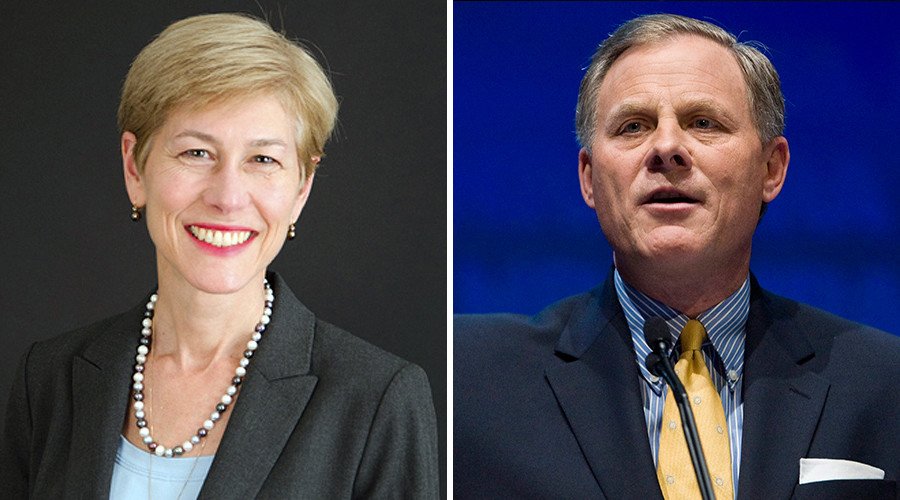
Ohio
Former Governor Ted Strickland is taking on Sen. Rob Portman, who has a 97.2 percent chance of holding onto his seat, according to FiveThirtyEight. The Democrats have poured a lot of money and effort into the race, but Portman has run one of the best campaigns this election cycle by intensely focusing on local issues, the Wall Street Journal reported.
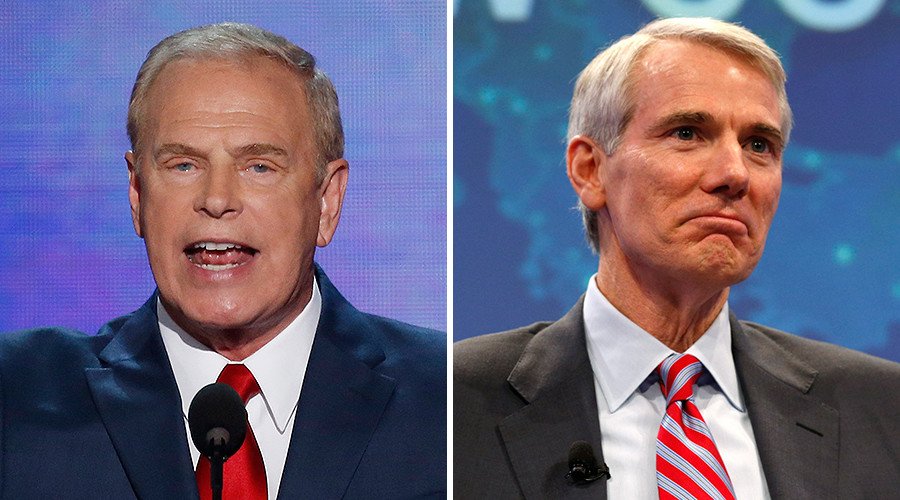
Pennsylvania
Democrat Katie McGinty, a former state official, hopes to oust Republican Sen. Pat Toomey. While FiveThirtyEight gives McGinty a 71 percent chance of winning, the Real Clear Politics average of polls has the race as too close to call, with McGinty up by 3.8 percentage points ‒ a statistical tie. Toomey is walking the tightrope when it comes to Trump by distancing himself from, but not completely disavowing, his party’s nominee, the Wall Street Journal reported. Clinton is currently up on Trump in the not-quite-a-swing-state, but the race is tightening and is within the margin of error of most polls. If Clinton wins in the Keystone State, it could be tough for Toomey to outperform Trump by enough of a margin to defeat McGinty, according to the Washington Post.
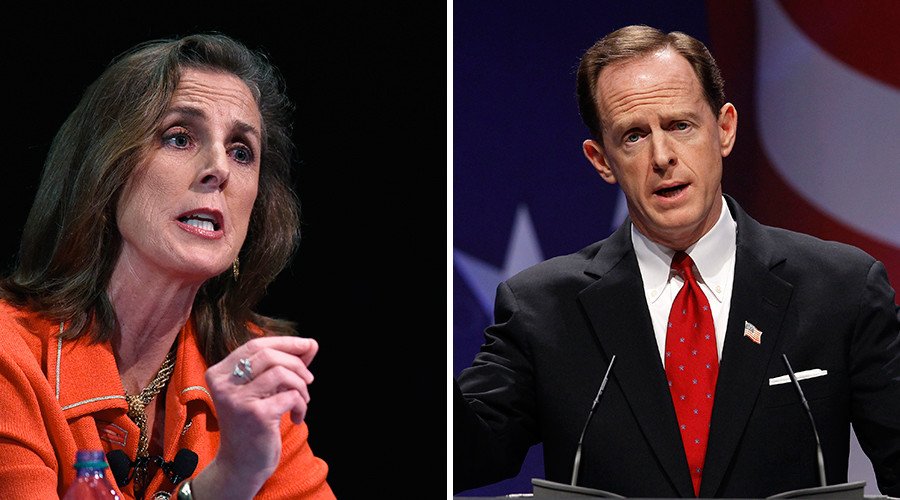
Wisconsin
Former Sen. Russ Feingold seeks to retake his seat from the man who ousted him, Sen. Ron Johnson, in the Republican wave of 2010. Feingold, an avowed liberal, served as senator for Wisconsin for three terms (18 years) before losing to Johnson, a conservative who focused on austerity and debt. In the rematch, the Republican has had to move away from cutting the deficit and towards national security issues, the Wall Street Journal reported. Feinstein has touted populist ideas popular with Bernie Sanders Democrats, such as making college affordable and support for the Affordable Care Act (better known as Obamacare). Feingold has an 89.2 percent chance of winning the race, according to FiveThirtyEight. Although a Monmouth University poll released Wednesday gave the Democrat a 1-point lead, the polling institute’s director said that the race’s narrowing shouldn’t affect the result because “Feingold remains well-placed to return to the Senate barring any major shakeup.” The Real Clear Politics average of polls has Feingold up 2.7 percentage points, which, in most cases, it considers to be a toss-up, but it has the Wisconsin race listed as “leans Dem.” As a historical note, if Feingold wins, he will become only the second defeated senator to reclaim his seat in a rematch in the last 100 years. The first was Sen. Peter Gerry (D-Rhode Island) in 1928, data from the Senate Historical Office shows.
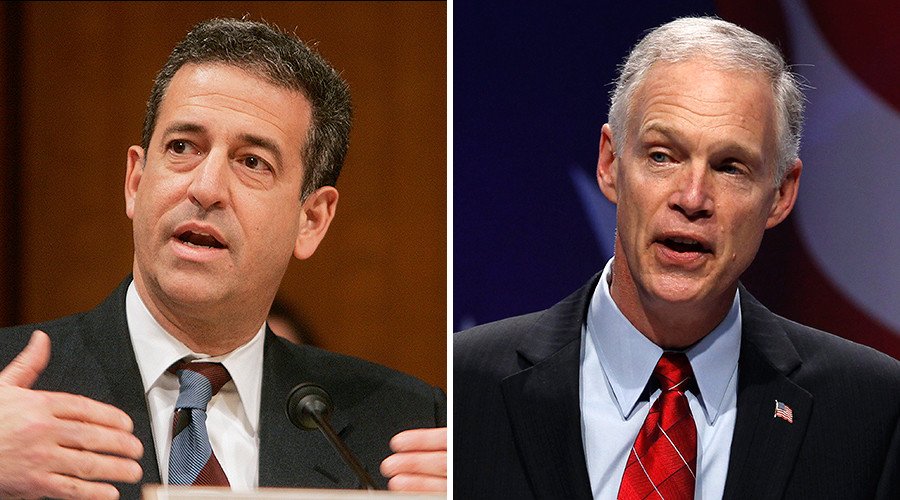
Louisiana
One more state to keep an eye on is Louisiana. Republican Senator David Vitter is retiring, leaving his seat open. The Pelican State will hold a so-called “jungle primary” on November 8, in which all seven candidates, regardless of party, face off against each other. If no candidate gains a majority of the vote, there will be a runoff election between the top two vote-getters on December 10. Republicans have an 84.9 percent chance of holding onto the seat, according to FiveThirtyEight. State Treasurer John Kennedy currently holds a lead over his four fellow Republicans ‒ including former Ku Klux Klan Grand Wizard David Duke ‒ and the two Democrats in the race. Democratic Public Service Commissioner Foster Campbell is in second place, the New Orleans Times-Picayune reported.
